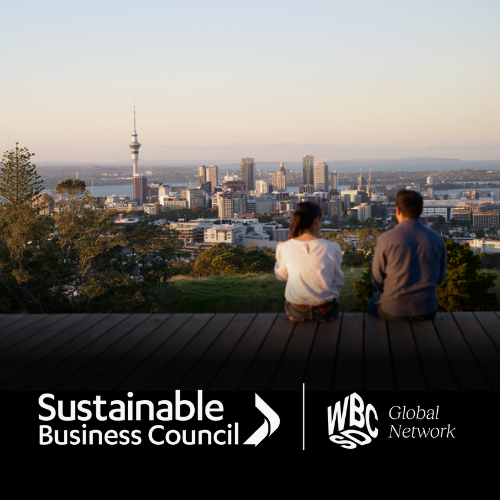Helping your staff be future ready
Building the capability of our businesses and workforce will be crucial to social and economic wellbeing. Robert Perry reports on our Microcredential pilot with Auckland Unlimited, Sanford and Education Unlimited.
In the words of William Gibson: “The future is already here – it’s just not very evenly distributed.“
We see that clearly in the New Zealand workforce. The world of work is rapidly changing, even more so now due to Covid-19. 2020 has been a time of huge disruption coupled with resilience, creativity and innovation. Building the capability of our businesses and workforce will be crucial to social and economic wellbeing.
Some people have the skills that allow them to adapt and to thrive during disruption and change. But not everyone has had a positive education experience or the learning opportunities to develop skills to adapt to the rapid changes in technology or access pathways to move into more skilled roles. But businesses working together can change that. And a new programme has been launched which any New Zealand business can access, to prepare your staff for the future.
SBC brought several SBC members from different sectors together, including Auckland Unlimited, Sanford, IAG, BNZ, and NZ Steel with MBIE to find solutions.
One of the areas of innovation was to support those who are most at risk of being negatively affected by these changes, notably Maori and Pasifika, and particularly those with low literacy or numeracy. Businesses have identified a gap in learning approaches between formal tertiary qualifications and informal workplace training, which could be filled by delivering micro-credentials.
Through a co-design process and rapid prototyping, one of the projects that emerged was the Future Ready: Money Confidence micro-credential pilot. ATEED worked closely with Education Unlimited, drawing on their experience as adult learning facilitators working in low literacy/numeracy environments, to turn the prototype into the micro-credential which was delivered to staff at Sanford in early 2020.
Over 10 weeks – split either side of the first lockdown – 8 night-shift staff developed critical financial literacy and numeracy skills, as well as accessing digital tools and increasing their budgeting ability. Sanford was keen to help staff build their skill base beyond what they need for their day to day work. The aim of the pilot was to help them, and by extension their households and communities to achieve whatever their goals are, whether it be saving for a home or a car, helping their families, or reducing debt. It also gave some of them an opportunity to gain a recognised New Zealand qualification for the first time.
“We are always keen to develop our people and support their thirst for learning with positive learning experiences. We have a wonderfully diverse workforce so were excited to have the opportunity to pilot this program for our nightshift team. The Money Confidence programme helped our people develop lifelong skills to build resilience and confidence for the future. We were proud and humbled to hear the commitments and changes they had applied across their lives after the training,” says Karen Duffy, Chief People Officer at Sanford.
The course helped all participants to feel more confident handling their finances, and setting savings goals.
Peleatia Tauaika, one of the course participants, said “I learnt to save a lot of money on this course, and I expand my little business that I do on the side, my family business… and now I feel that I’m successful.”
Sinai Po Lilly Maka said “I’m happy that I’ve done this course because I get to learn more about saving and budgeting, I never thought I’d get to have that on my mind. I’d like to save up for my future and my daughter and my family too.”
Once someone has started their working life, it is difficult to take time out to learn new skills. In-work training may open the door to new employment opportunities, either within the company or externally. But first, it’s important to find out what staff need to thrive. For example, the course focus on financial literacy also included digital literacy skills such as using a mouse and navigating official forms online.
Tina Rose, Director of Education Unlimited, said “We were impressed by the high levels of participation, and their enthusiasm to learn skills beyond what they needed for their day-to-day work. What we often see with these courses is that the actual benefits to wider family and community end up being ten times the explicit benefits of an increase in skills.
The pilot allowed Auckland Unlimited to experiment with micro-credentials as part of its wider initiatives to help businesses and workers be more resilient and future ready.
Pam Ford, General Manager Economic Development, Auckland Unlimited says Auckland’s Pacific communities – predominantly based in south and west Auckland – are and will continue to be the hardest hit by the economic impact of COVID-19.
“These same communities play an important part in our region’s social and economic prosperity. Initiatives like this mean we can work together not just so people are resilient through short-term challenges but are empowered to thrive in the future, to lift their prosperity for themselves, their families and communities. This is enabling people to create a path for themselves to higher level, more skilled roles and further qualifications,” says Pam Ford.
Since the pilot was completed, MBIE has granted funding to help us bring the programme to more businesses, both within Auckland and potentially across New Zealand. Any business is welcome to apply. Our focus is on workforces with a high proportion of Pacific employees, particularly in the manufacturing, construction and healthcare sectors.
For more information, contact Joanna Bourke Project Manager – Project Ikuna, tel 64 27 281 7147 or [email protected]
Contact: Robert Perry, Manager, Thriving People, Sustainable Business Council
Phone:
Email:

